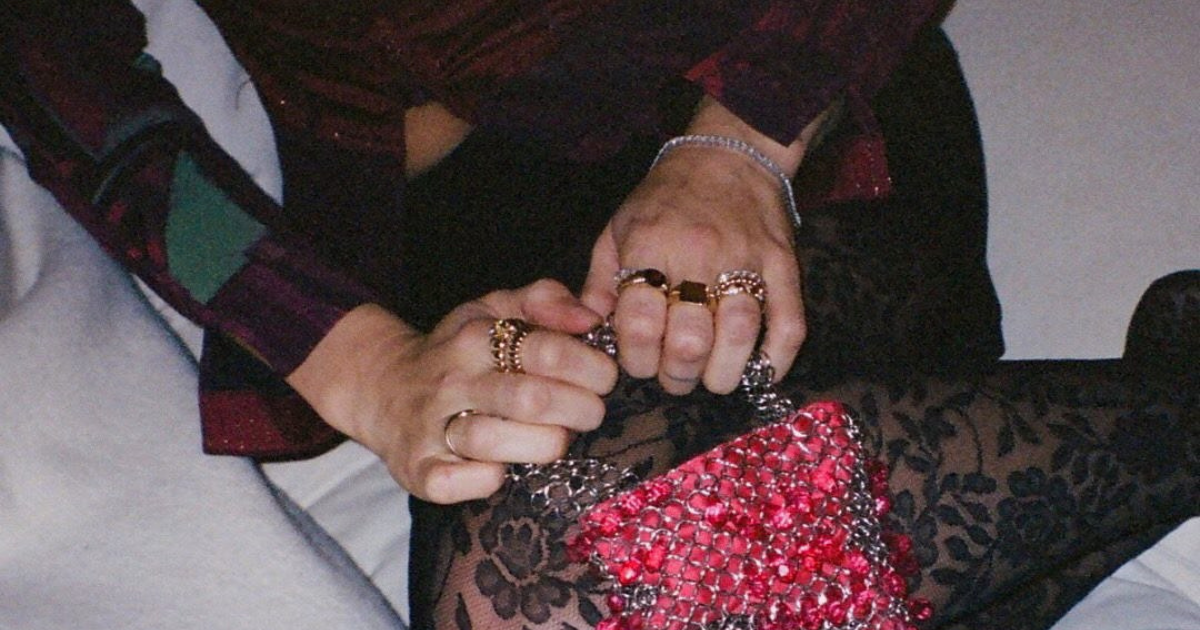Mejuri – not for showcase but for yourself
Jewelry as part of self-identification

Once upon a time, a gold ring was something to wait for. It was given with apologies. With intentions. With a proposal of marriage. Jewelry was kept in a cabinet – between Chinese porcelain and wedding albums – as a memory, as capital, as legacy. It was worn on special occasions. And almost never – just because.
But in 2015, one woman decided to change that tradition. Not the market, but the mindset. Not the price, but the recipient.
Her name is Noura Sakkijha. And her brand, Mejuri, is about right. The right to choose, to express, to be beautiful – every day. With no reason. No occasion. Just because you exist.
Reinterpreting the gift
“Women shouldn’t have to wait for anybody to decide they deserve jewelry,” says Sakkijha. Her tone isn’t rebellious. It’s assured. Like a perfectly shaped ring: simple, clear, timeless.
Noura comes from a family of jewelers in Jordan. But her own path started elsewhere – with numbers, formulas, and logistical models. After earning an MBA in Canada, she worked as an analyst at a large corporation and found herself thinking more and more: the jewelry market felt stuck in the 20th century.
Too many middlemen. Too many markups. And above all, too old a narrative: he gives, she receives.
That’s how Mejuri was born – a brand offering women the chance to be the author, not the recipient. To buy for themselves. To wear every day. To be their own special occasion.
A chain you never want to take off. A ring you don’t have to hide. Earrings you can sleep in. Mejuri’s DNA is everyday gold. Minimalism with personality. Simplicity with style. Subtlety with dignity. No show. No status play. These are jewels for people who know how to choose for themselves.
Sakkijha says, “It was important for me to create pieces that don’t feel imposed. I wanted women to look at a piece of jewelry and feel: This is mine – I see myself in it.”
Aesthetics and ethics
Mejuri is a brand that works from the inside out: 70% of the gold in its pieces is recycled. The diamonds are all conflict-free and Kimberley Process–certified. Production takes place with certified partners in Italy, South Korea, and Canada.
“We don’t pretend to be saving the world,” says Noura, “but we know every step counts.” And it’s true: the closer a piece sits to your skin, the higher your standards for it should be.
Jewelry as a gesture toward yourself
In a world where jewelry has traditionally been associated with gifts, Mejuri offers another metaphor – jewelry as an act of self-care. That’s why the brand resonates so deeply with women tired of waiting, of rules, of phrases like “wait for the right moment.”
Sakkijha says, “Investing in yourself isn’t selfish. It’s acknowledgment. And power.”
In 2020, Mejuri launched the Empowerment Fund – a scholarship program supporting women pursuing education, including through non-traditional paths. In partnership with BBPA and UNCF, the company offers scholarships, leadership support, and a commitment to structural rather than symbolic change. In this way, jewelry becomes a platform to talk about what matters – about bodies, rights, and voices.
A community, not a showcase
Step into one of Mejuri’s 22 boutiques in London, New York, or Toronto and you’ll notice something right away: no one is judging you. There’s no cold glass case. No salespeople scanning you up and down. Just a space where you’re not a potential customer – you’re a person who’s trusted.
The same spirit extends to Mejuri’s digital presence: Instagram, TikTok, and Pinterest have become places where women can see how a ring fits into real life. On fingers holding coffee cups. On wrists, petting cats. On necks bent over books. Mejuri doesn’t dictate style – it fits into yours.
In recent years, the term quiet luxury has returned to fashion – calm, understated, but rich in quality. For Mejuri, it was never a trend. It’s the brand’s essence.
Classic pearl earrings, signet rings, engravable bracelets, birthstone chains – it’s not about showing off, but holding onto something. Something that stays with you.
That’s why Mejuri is worn not only by fashion editors and influencers, but by a wide range of women – from Ariana Grande and Kate Middleton to Margot Robbie, Olivia Rodrigo, and Sarah Harris. They wear croissant hoops, engraved rings, and minimalist bands.
Jewelry that brings you back to yourself
Some wear wedding rings. Others wear friendship rings. Some buy a ring after a breakup, on a birthday, or simply because something inside says, “I want this.” Mejuri doesn’t impose a story – it leaves space for yours.
These are pieces that don’t boast of success but remind you of your strength. Of desire. Of joy. Of the fact that you can, simply because you want to. And sometimes, they’re just about the sun, a cup of coffee, a hand on the steering wheel, and a delicate ring glinting in the morning light.


